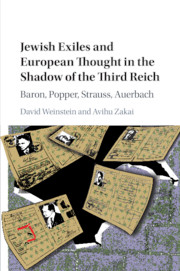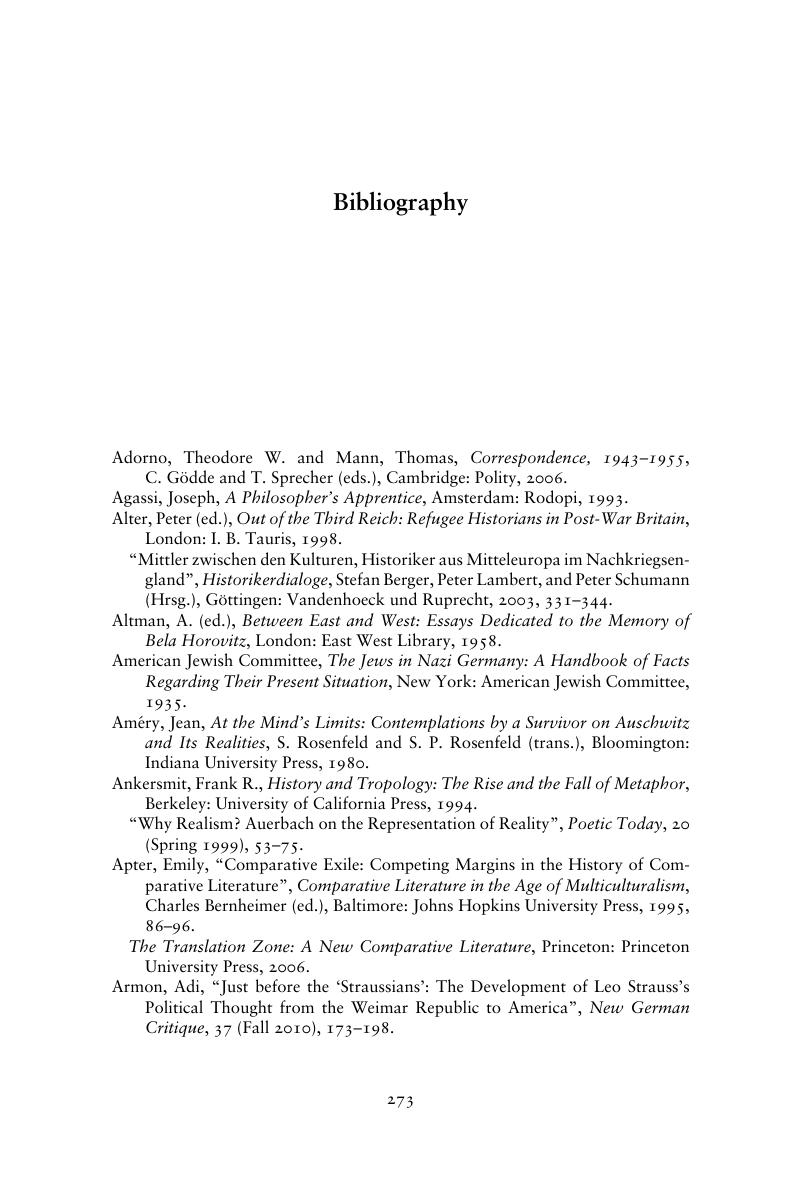 Jewish Exiles and European Thought in the Shadow of the Third Reich
Jewish Exiles and European Thought in the Shadow of the Third Reich Book contents
- Jewish Exiles and European Thought in the Shadow of the Third Reich
- Jewish Exiles and European Thought in the Shadow of the Third Reich
- Copyright page
- Contents
- Preface
- Archives
- Abbreviations
- Introduction
- 1 Hans Baron
- 2 Karl Popper
- 3 Leo Strauss as “Talmud in the Wrong Place”
- 4 Erich Auerbach and the Crisis of German Philology
- Conclusion
- Bibliography
- Index
- References
Bibliography
Published online by Cambridge University Press: 05 July 2017
- Jewish Exiles and European Thought in the Shadow of the Third Reich
- Jewish Exiles and European Thought in the Shadow of the Third Reich
- Copyright page
- Contents
- Preface
- Archives
- Abbreviations
- Introduction
- 1 Hans Baron
- 2 Karl Popper
- 3 Leo Strauss as “Talmud in the Wrong Place”
- 4 Erich Auerbach and the Crisis of German Philology
- Conclusion
- Bibliography
- Index
- References
Summary

- Type
- Chapter
- Information
- Jewish Exiles and European Thought in the Shadow of the Third ReichBaron, Popper, Strauss, Auerbach, pp. 273 - 295Publisher: Cambridge University PressPrint publication year: 2017
